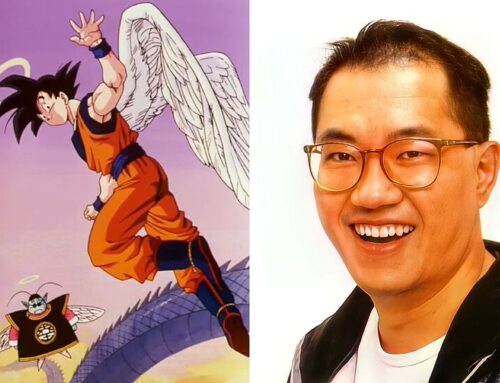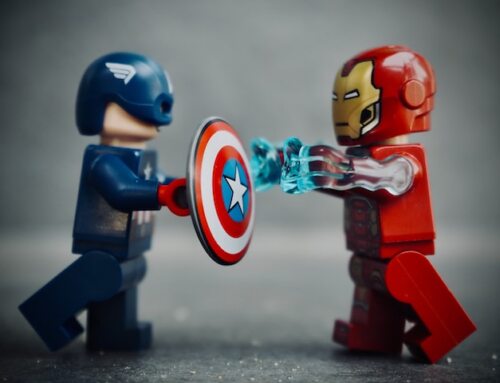In my last post, I discussed a few reasons why the Western world (or, perhaps the world, in general) is polarized, particularly when it comes to political beliefs and issues.
More or less, a psychological switch has been turned on, making us more sensitive to threat– specifically, the threat of one another. Let’s call this switch a tribalistic tendency that’s in us all.
What flicked the switch? A few things: cultural changes like how we conceive of and categorize various ideas (“concept creep”); exploitation of our negativity bias by media outlets (social media algorithms included); and broad-scale changes in mental health. There are more of course, and many things (even the presence of diseases… like COVID-19) affect political belief and the psychology surrounding it.
Basically, we’re experiencing a perfect cultural storm. And all the while, those with political agendas, whether they know exactly what’s going on or not, are along for the ride and exacerbating the problem for said agendas.
I think we as the general public have a responsibility to not only hold our political leaders accountable but also to hold ourselves accountable and not let our psychological tendencies get the best of us, even while media outlets and politicians may try exploiting it. I believe we can do certain things to control ourselves, keep ourselves from extremism, and keep our society safe and stable rather than spiralling into chaos, unrest and division.
Politics and… Zombies?
I’ve never been much of a zombie entertainment guy, but I really enjoyed watching The Walking Dead (TWD) over the years.
Zombie content, at its best, asks deep questions of society and what it means to be human. TWD confronts a many, a major one being this:
How do we rebuild and maintain a peaceful world when we are threatened from the outside as well as the inside?
TWD sees humans as humanity’s own worst enemy. Sure, the “walkers” threaten us from all sides and make life chaotic. But in the end, we respond to that chaos by turning against each other so that we can guarantee our own survival and safety. The irony is that working together is the better option. Unfortunately, cooperation is so complex and difficult that often primal instincts kick in and drive our decision-making.
The show’s main character, Rick Grimes, and members of his in-group have to fight tooth and nail to humanize each other and those outside of their group. Trust is hard to come by when things have gone to crap.
This is what’s happening in our world, to a much lesser extent. It’s a familiar process: Something throws us for a loop; we freak out, try to grab what we can, and otherwise become more sensitive to the threats around us, including each other. Then, the effect spirals, and we all get more sensitive and edgy; then, division, dehumanization and chaos follow.
It’s a primitive survival mechanism, turned on when survival is – or seems – most at risk.
Thousands of years ago, there was only so much food and water. But if you currently live in a developed nation, you’re almost never in short supply of vital resources. So while I don’t want to invalidate our survival responses since they make perfect sense in some ways, I think we can develop an awareness of when these strong but perhaps unnecessary survival responses are kicking in.
But I digress.
We Must Not Fan the Flames of Strife
Rick and his crew respond in a variety of ways, but as TWD goes on, one theme emerges from the rest.
It’s this: someone has to stop the endless cycle of strife. Full stop. Whether it’s through forgiveness, nonviolence, or whatever else, meaningful risk has to be taken to let go of the past and trust each other in the future.
“We cannot fan the flames of strife,” says Prince Reyson in Fire Emblem: Path of Radiance.
[Side note: Video games have the most underappreciated stories.]
This once-betrayed prince was asking his people to forgive a great sin rather than live in bitterness. When we do not forgive, we invite endless cycles of strife and division.
Reyson saw that forgiveness was the best long-term option for his people, even if it was the more difficult option in the short-term.
Forgiveness doesn’t mean forgetting the past; it does mean we no longer hold a debt against our fellow man who has wronged us, lest we remain enemies forever.
This is what Jesus meant when he said to love our enemies. It wasn’t just to “take the high road,” but to bring about peace. The only other option is the endless cycles of strife and conflict, which is the very tribalism and polarization we’re talking about.
[It is this kind of thinking that has made our society today possible. It was not a Roman idea to forgive and love your enemies. The Roman way was to conquer and vanquish them. Christianity won out over Rome because its idea lends better to human survival in the long term. If we can eat humble pie and forgive our enemies, societies can thrive and become constructive rather than destructive. More on this below.]
Forgiveness enables the stability we’ve been talking about by helping us maintain emotional connection and trust with one another. And that, I think, is the goal: trust.
If I trust you – including the collective you, those who are around me, and society at large – then we are able to move forward without the tribalistic sensitivity we’ve been talking about. That takes great risk and sacrifice – especially when you feel betrayed or hurt. But it’s that or strife.
Take your pick.
Ingredients to Slow the Spiral and Defeat Polarization
So, is the spiral inevitable? Is its chaos a guarantee?
Let’s try a few things to ensure order:
1. Conversations.
I feel like I say this a lot, but the number one antidote to polarization, cancel culture, and all the things wrong with our oversensitive culture is this: actual conversations about difficult issues with people you disagree with.
Conversations do several things.
First, they connect us with others, making us less stressed and more at ease, buffering against the tribalistic switch we mentioned above. Our minds learn that people can be trusted; that the “other” I feared isn’t so bad after all. Second, conversations facilitate understanding about other perspectives, which, in turn, helps us realize that we could be wrong and that there are different ways of looking at certain problems.
Finally, talking face-to-face with people (not tweeting them or commenting on their videos) is a surefire way to humanize them. That’s halfway to a better world and less polarization right there. It’s hard to justify extreme polarization the more you talk face-to-face with a human being.
Alright, so conversation is number one. You’ve now made psychological contact with people, even people you disagree with or dislike.
2. Empathy.
This means, in part, attempting to understand why someone believes what they do. Conversations are counterproductive if they are all about you making your point.
Also a note: empathy means more than just intellectually understanding why someone believes what they do. It also connotes understanding at an emotional level and then validating that emotion with your words. So next time you’re having one of these tough convos, practice reflecting back (in your own words) to someone what you think they’re thinking and feeling.
This might take a bit more work, but it’s necessary work if we’re really hoping to connect and build bridges.
3. Self-Awareness.
Recognize when you’re overreacting or experiencing the survival-mechanism sensitivity we mentioned above. A healthy self-awareness here can mitigate those responses and get us re-focused on the problem at hand.
4. Look for common ground first.
Building bridges means searching out the common ground that always exists between two human beings.
Often, acknowledging common ground helps us realize that we have far more in common with people than we think. We may even have the same “destination” in mind, and simply disagree on how to get there. If we’re humble enough, hopefully we recognize that we could be wrong (even partially wrong) and that the other person could help us be more right. Disagreement, then, could lead to better problem solving and, ultimately, a better world.
5. Communicate your view with grace and respect.
Acknowledge and admit the limitations of your own perspective. Having been in some pretty contentious debates before, I know how disarming this approach can be. It makes the conversation about the ideas rather than the people, which leads to more constructive dialogue.
I try to do that here in my blog and whenever I’m having a more intense conversation.
When you start with common ground and then articulate your differences with respect, you turn disagreement into what it should be: an evolutionary, constructive process meant to help us reach new levels of truth, understanding and unity.
So embrace disagreement, love through it, and be stronger for it.





